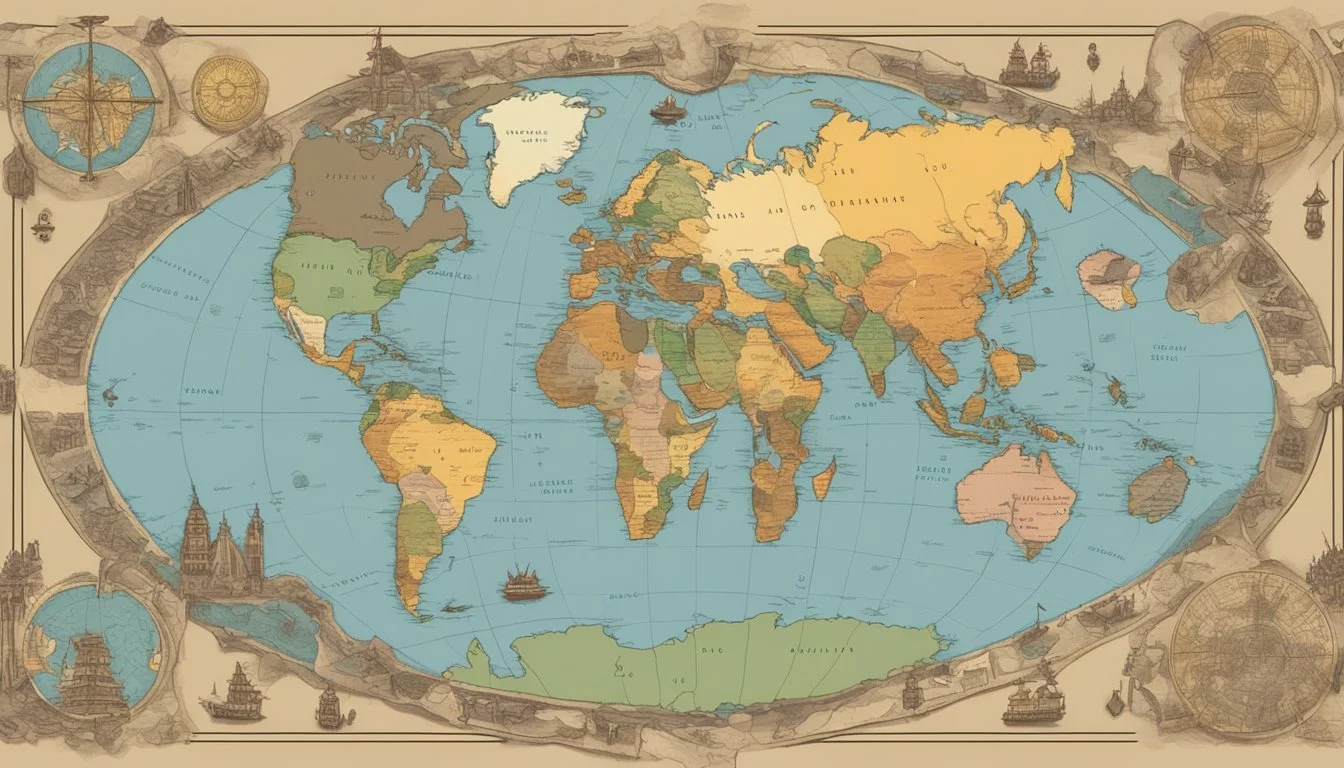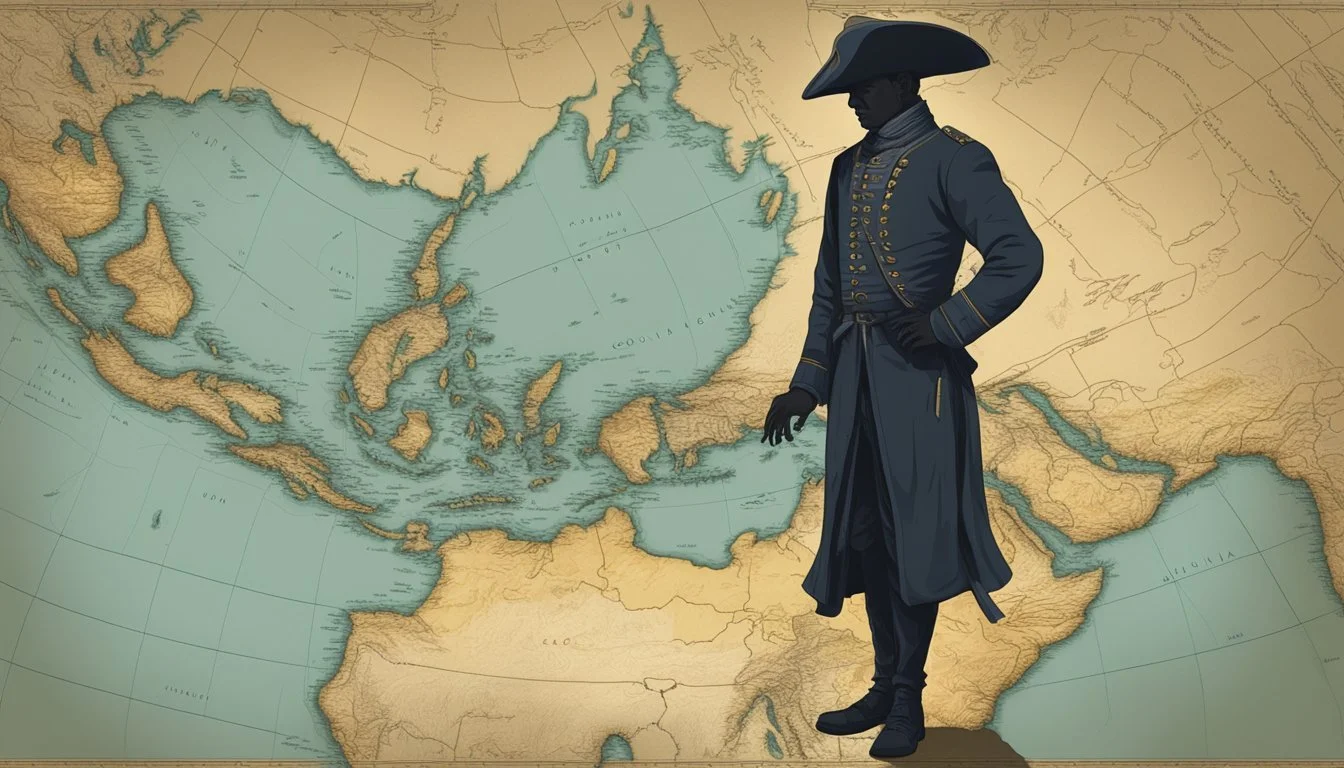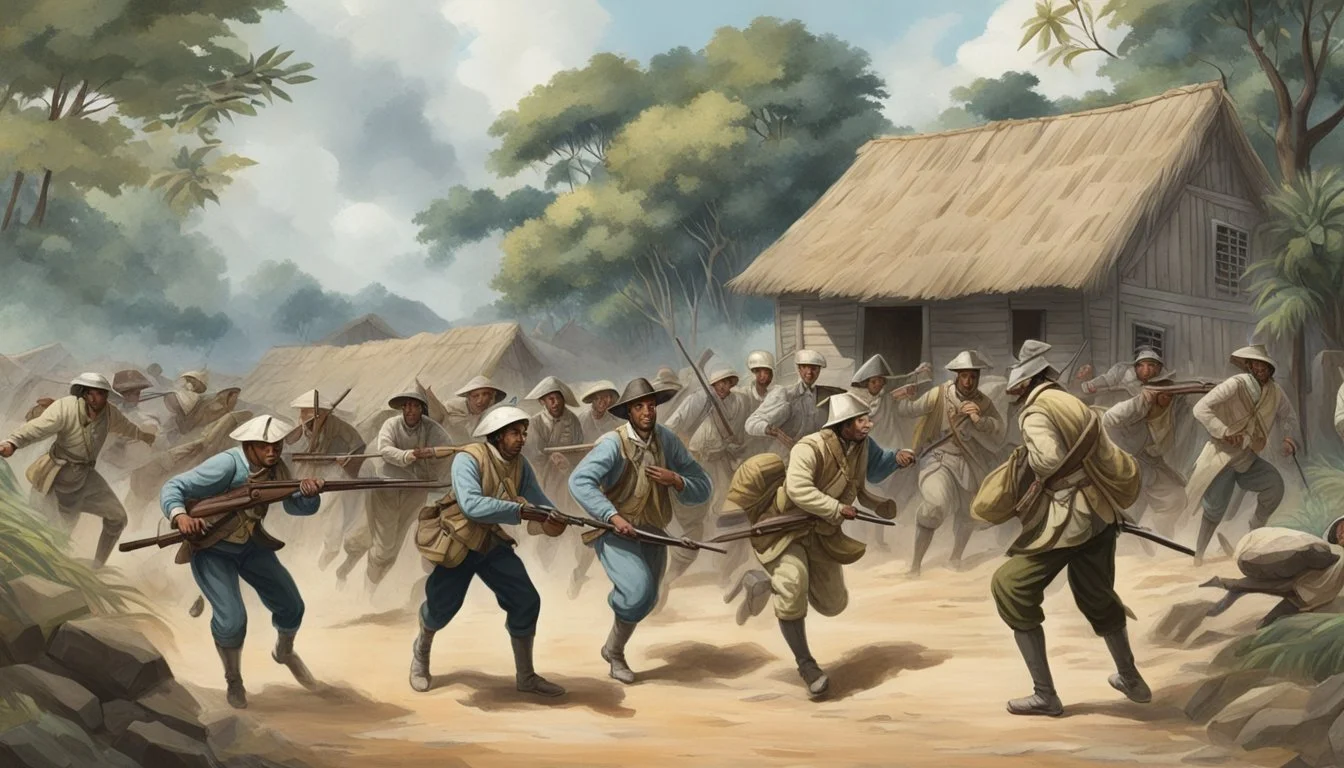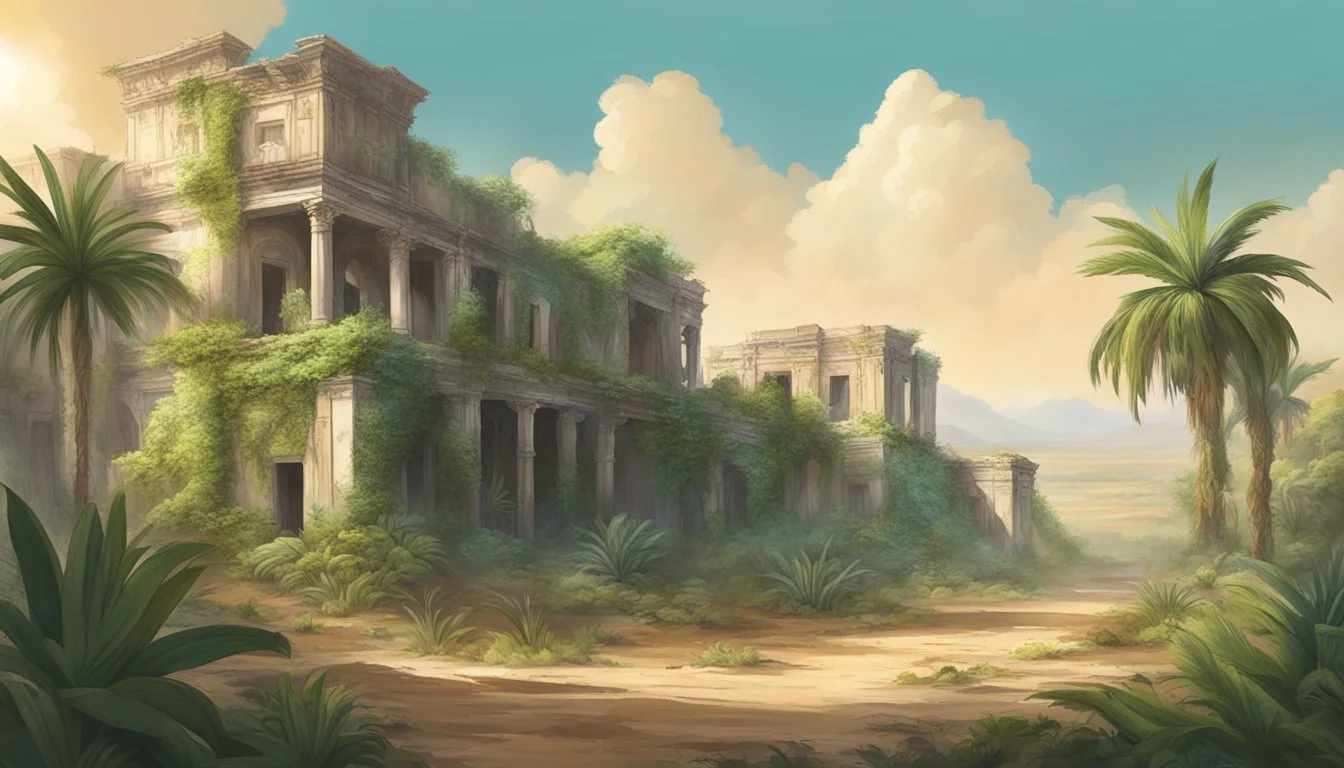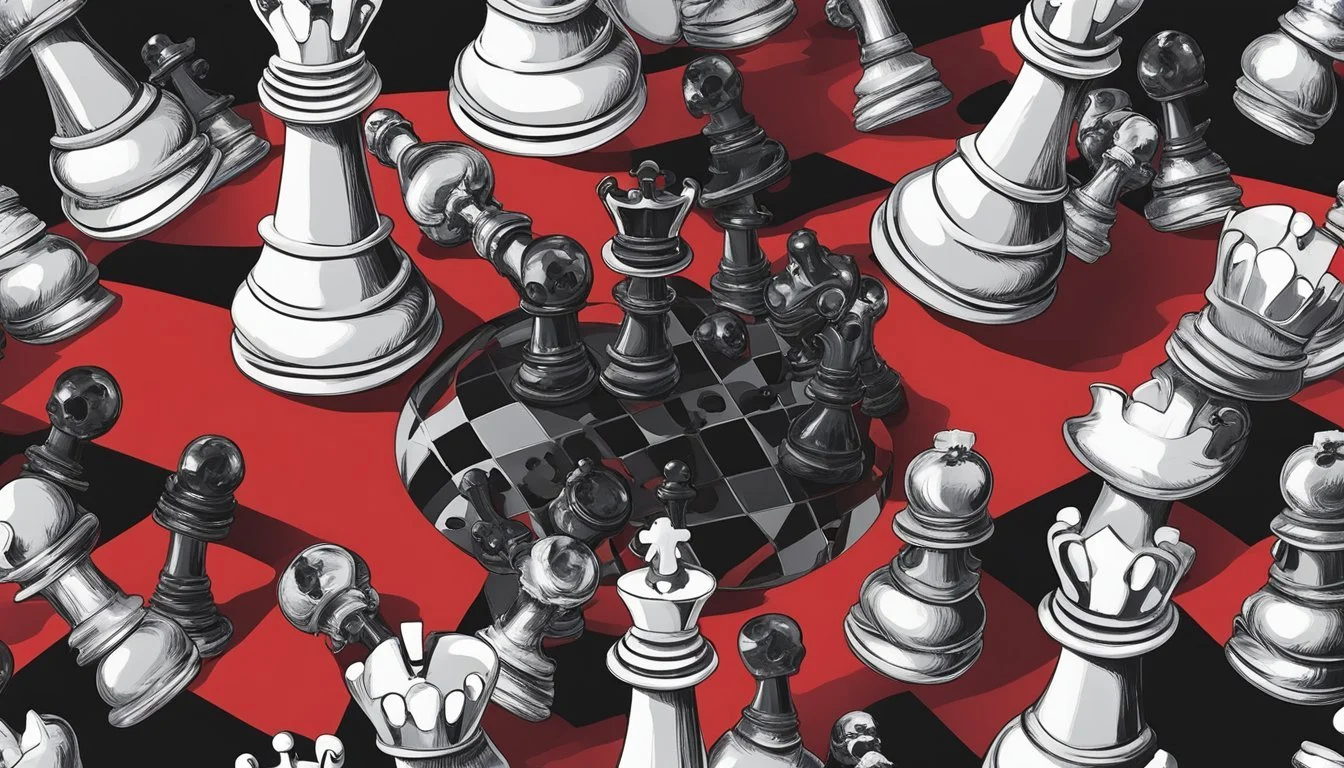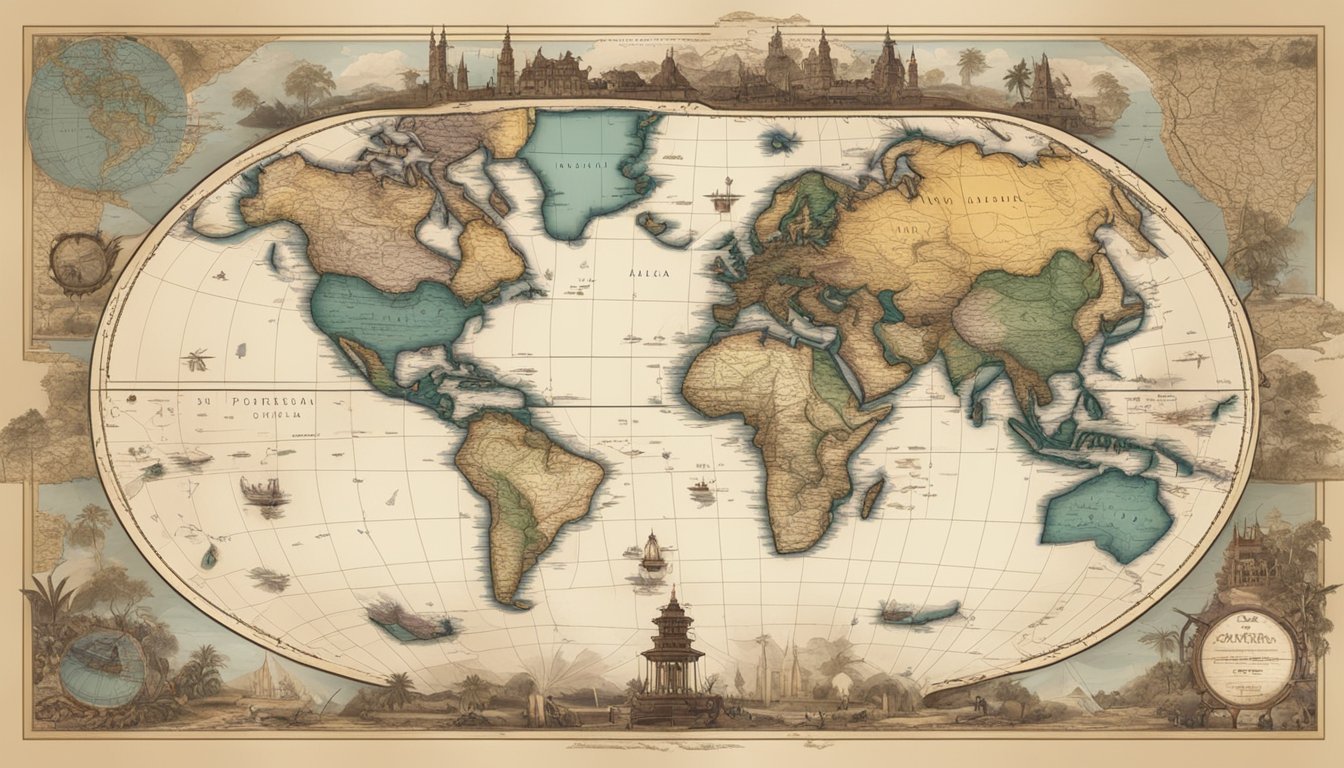8 Documentaries Exploring the Age of Colonialism and its Legacy
Uncovering the Global Impact
Documentaries offer a powerful lens through which to examine historical events and their lasting impacts. A selection of films focused on the Age of Colonialism and its legacy provides viewers with diverse perspectives on this complex period of global history. These documentaries shed light on the motivations, methods, and consequences of colonial expansion, exploring how imperial powers reshaped societies and cultures around the world.
From the conquest of the Americas to the scramble for Africa, these films delve into key moments and figures that defined the colonial era. They also trace the ongoing effects of colonialism in modern times, examining issues of cultural identity, economic inequality, and geopolitical tensions that continue to shape our world today. By combining archival footage, expert interviews, and personal stories, these documentaries offer nuanced insights into a pivotal chapter of human history.
1) 'The Act of Killing' by Joshua Oppenheimer
Joshua Oppenheimer's 2012 documentary 'The Act of Killing' offers a chilling exploration of Indonesia's 1965-66 genocide. The film focuses on Anwar Congo, a former death squad leader who participated in the mass killings of suspected communists.
Oppenheimer takes an unconventional approach by inviting Congo and his associates to reenact their crimes through cinematic dramatizations. This method provides a disturbing insight into the perpetrators' mindsets and their lack of remorse.
The documentary reveals the ongoing impact of the genocide on Indonesian society. It shows how the killers are still celebrated as heroes, highlighting the complex legacy of this dark period in the country's history.
'The Act of Killing' received critical acclaim for its innovative storytelling and unflinching examination of human brutality. The film challenges viewers to confront uncomfortable truths about violence, impunity, and historical memory.
Through its unique perspective, the documentary sheds light on the long-lasting effects of colonialism and authoritarian rule in Indonesia. It prompts reflection on how societies come to terms with past atrocities and the mechanisms that allow such violence to occur.
2) 'Concerning Violence' by Göran Olsson
'Concerning Violence' is a 2014 documentary directed by Swedish filmmaker Göran Hugo Olsson. The film explores the struggle for liberation from colonial rule in Africa during the 1960s to 1980s.
Olsson's work is based on archival footage from Swedish documentaries spanning 1966 to 1987. These visual materials capture pivotal moments in various African independence movements.
The documentary combines this powerful historical footage with excerpts from Frantz Fanon's influential book 'The Wretched of the Earth'. Fanon's text provides critical commentary on colonialism and its effects.
'Concerning Violence' presents nine scenes that illustrate the complexities of anti-imperialist resistance. The film offers a unique perspective on the colonial era and its aftermath in Africa.
Olsson's approach to the subject matter is both bold and innovative. By using archival material, he creates a visual narrative that brings historical events to life for modern audiences.
The documentary serves as an important exploration of colonialism's impact and the fight for independence. It provides viewers with a thought-provoking look at a crucial period in African history.
3) 'Empire of Dust' by Bram Van Paesschen
'Empire of Dust' is a 2011 documentary that offers a unique perspective on modern-day colonialism in the Democratic Republic of Congo. Directed by Bram Van Paesschen, the film explores the complex relationship between Chinese investors and Congolese workers.
The documentary follows two key figures: Lao Yang, a Chinese manager, and Eddy, his Congolese translator. They work for CREC (Chinese Railway Engineering Company), which aims to rebuild a road near Kolwezi, a mining town in Katanga province.
Van Paesschen's observational style captures the day-to-day interactions and cultural clashes between the Chinese and Congolese. The film highlights the challenges of communication, differing work ethics, and contrasting expectations.
The director adds a creative touch by incorporating humorous interludes featuring a fictional Congolese radio DJ. These segments provide context and commentary on the unfolding events.
'Empire of Dust' serves as a microcosm of globalization, showcasing the impact of China's economic interests in Africa. It raises questions about power dynamics, cultural understanding, and the long-term consequences of foreign investment in developing nations.
4) 'Africa: A Voyage of Discovery' by Basil Davidson
'Africa: A Voyage of Discovery' is a groundbreaking documentary series by historian Basil Davidson. Premiering in 1984, the series offers a comprehensive exploration of African history from prehistoric times to the mid-20th century.
The eight-episode series was produced through a collaboration between Channel 4, the Nigerian Television Authority, and RM Arts. It received critical acclaim, winning the Gold Award at the 1984 International Film and Television Festival of New York.
Davidson's work challenges Western misconceptions about African history and culture. The series examines ancient African civilizations, the impact of colonialism, and the rise of nationalism across the continent.
Filmed on location throughout Africa, the documentary provides viewers with stunning visuals of diverse landscapes and cultures. Davidson's narrative style combines academic rigor with accessible storytelling, making complex historical concepts engaging for a general audience.
'Africa: A Voyage of Discovery' remains a significant contribution to the understanding of African history. Its nuanced approach to the continent's past and present continues to influence scholars and viewers alike.
5) 'The Ghosts of Amistad: In the Footsteps of the Rebels' by Tony Buba
'The Ghosts of Amistad: In the Footsteps of the Rebels' is a documentary directed by Tony Buba and produced by Marcus Rediker. The film is based on Rediker's book, "The Amistad Rebellion: An Atlantic Odyssey of Slavery and Freedom."
The documentary chronicles a 2013 journey to Sierra Leone. The filmmakers visit the home villages of the 53 Africans who rebelled against their captors and seized the slave schooner Amistad in 1839.
Buba and his team interview elders about local memories of the Amistad case. They also search for the ruins of Lomboko, the slave trading factory where the captives' transatlantic voyage began.
The film provides a unique perspective on the Amistad insurrection. It explores the historical event through the lens of present-day Sierra Leone, connecting past and present.
'The Ghosts of Amistad' offers viewers insights into the lasting impact of the slave trade on West African communities. It sheds light on how the Amistad rebellion is remembered in the rebels' homeland.
6) 'The Apology' by Tiffany Hsiung
'The Apology' is a powerful documentary directed by Tiffany Hsiung. The film sheds light on the experiences of former "comfort women" who were forced into sexual slavery by the Imperial Japanese Army during World War II.
Hsiung's work follows the personal journeys of three survivors as they seek justice and reconciliation. These women were among the estimated 200,000 girls and young women kidnapped from various Japanese colonies, including Korea and Indonesia.
The documentary has garnered significant acclaim, winning a Peabody Award and a duPont-Columbia Award. It was also named Best Documentary at the Busan International Film Festival.
'The Apology' took nearly a decade to complete, reflecting Hsiung's commitment to the subject matter. The film has been praised for its sensitive approach to a difficult topic.
Critics have described the documentary as inspiring and a moving testament to women who have survived atrocities. It offers a unique perspective on the lasting impacts of wartime sexual violence and the ongoing fight for recognition and justice.
7) 'Exterminate All the Brutes' by Raoul Peck
Raoul Peck's four-part documentary series "Exterminate All the Brutes" examines the brutal history of European colonialism. The series premiered on HBO in April 2021, offering a unique blend of documentary filmmaking and dramatic reenactments.
Peck's work explores the genocidal aspects of colonialism from the Americas to Africa. He combines personal narratives with historical analysis to deconstruct how history has been created and obscured over time.
The series takes its title from Joseph Conrad's novel "Heart of Darkness" and draws inspiration from works by historians Sven Lindqvist, Roxanne Dunbar-Ortiz, and Michel-Rolph Trouillot. Peck uses these sources to craft a compelling narrative about the legacy of colonialism.
"Exterminate All the Brutes" stands out for its innovative approach to documentary filmmaking. Peck narrates the series himself, guiding viewers through a visually striking journey across time and continents.
The documentary challenges viewers to confront uncomfortable truths about European colonialism and its lasting impacts. It presents a thought-provoking examination of how colonial ideologies have shaped modern societies and global power structures.
8) 'White King, Red Rubber, Black Death' by Peter Bate
Peter Bate's documentary "White King, Red Rubber, Black Death" sheds light on a dark chapter of colonial history. The film examines King Leopold II of Belgium's exploitation of the Congo Free State from 1885 to 1908.
During this period, Leopold II turned the Congo into his private colony. The documentary reveals the shocking brutality and forced labor practices implemented under his rule.
Bate's work estimates that approximately 10 million Congolese lives were lost due to Leopold's rubber extraction policies. The film uses a mix of historical footage, reenactments, and expert interviews to tell this often-overlooked story.
Professor Elikia M'Bokolo from the École des Hautes Études en Sciences Sociales in Paris serves as the on-camera narrator. His insights provide valuable context to the events depicted.
The documentary exposes Leopold II's false posturing as a protector of Africans from Arab slave traders. In reality, his regime subjected the Congolese people to severe oppression and violence.
"White King, Red Rubber, Black Death" offers a critical examination of colonial exploitation and its lasting impact on the Congo. It serves as an important historical record of this tragic period.
Understanding the Age of Colonialism
The Age of Colonialism shaped global power dynamics and cultural exchanges from the 15th to 20th centuries. European nations expanded their territories and influence across continents, fundamentally altering societies and economies worldwide.
Historical Context
Colonialism emerged in the late 15th century as European powers sought new trade routes and resources. The fall of Constantinople in 1453 disrupted traditional trade paths, spurring exploration. Technological advancements in shipbuilding and navigation enabled long sea voyages.
Portugal and Spain led early colonial efforts, establishing maritime empires. The Treaty of Tordesillas in 1494 divided newly discovered lands between these two powers. Other European nations soon joined the colonial race.
The Age of Exploration transitioned into systematic colonization. European powers established settlements, trading posts, and administrative systems in the Americas, Africa, and Asia.
Major Colonial Powers
Spain controlled vast territories in the Americas and Philippines. The Spanish Empire extracted wealth through silver mines and plantation agriculture. Portugal established colonies in Brazil, Africa, and Asia, dominating the spice trade.
Britain built the largest colonial empire, spanning North America, India, Australia, and parts of Africa. The British East India Company played a crucial role in expanding British influence in Asia.
France held territories in North America, the Caribbean, Africa, and Indochina. The Netherlands focused on maritime trade, establishing colonies in Indonesia, South Africa, and the Caribbean.
Belgium controlled the Congo, while Germany and Italy pursued colonial ambitions later in the 19th century.
Impact on Indigenous Cultures
Colonialism profoundly altered Indigenous societies worldwide, disrupting traditional ways of life and eroding cultural practices. The effects continue to reverberate through Indigenous communities today, shaping identity, language use, and social structures.
Cultural Displacement
Colonial expansion forced many Indigenous groups from ancestral lands, severing deep connections to place and tradition. Resettlement on reservations or urban areas fragmented communities and disrupted traditional economies and food systems. Sacred sites were often destroyed or made inaccessible.
In Australia, Aboriginal peoples experienced widespread displacement from their territories. This separation from land severely impacted cultural and spiritual practices tied to specific locations.
Boarding schools in North America removed Indigenous children from families, aiming to erase cultural identities. These institutions banned Native languages and customs, creating generational trauma.
Language and Identity
Colonial powers often suppressed Indigenous languages, seeing them as obstacles to assimilation. Many Native tongues faced extinction as their use was prohibited in schools and public life.
In Canada, residential schools punished children for speaking their native languages. This led to a sharp decline in fluent speakers and the loss of cultural knowledge embedded in Indigenous vocabularies.
Some communities are working to revitalize endangered languages. Language immersion programs and digital archives help preserve linguistic heritage for future generations.
Identity issues persist as Indigenous peoples navigate between traditional culture and mainstream society. Many seek to reclaim and redefine their identities in a post-colonial context.
The Legacy of Colonialism
The colonial era's impact continues to shape economic structures, power dynamics, and societal systems worldwide. Its effects are evident in global inequalities and lingering cultural influences across formerly colonized regions.
Economic Consequences
Colonial exploitation created lasting economic imbalances. Many former colonies struggle with resource dependency and uneven development. Raw material exports remain a key economic driver in these countries, limiting industrial growth.
Wealth disparities persist between former colonial powers and colonies. Economic policies often favor the interests of multinational corporations over local populations. This perpetuates cycles of poverty and debt in many developing nations.
International financial institutions sometimes reinforce colonial-era economic structures. Trade agreements and loan conditions can restrict policy options for former colonies. This limits their ability to pursue independent development strategies.
Modern-Day Implications
Colonial legacies influence contemporary geopolitics and social structures. Language policies, education systems, and governance models often reflect colonial influences. This impacts cultural identity and political institutions in former colonies.
Migration patterns between former colonies and colonial powers continue. These movements shape demographic trends and cultural exchanges. They also contribute to ongoing debates about national identity and integration.
Environmental issues stem from colonial resource extraction practices. Deforestation, soil degradation, and loss of biodiversity are long-term consequences. Climate change disproportionately affects many former colonies, exacerbating existing challenges.
Human rights and social justice movements address colonial legacies. Efforts to decolonize education, art, and public spaces gain momentum. These initiatives aim to reclaim narratives and promote cultural restoration in post-colonial societies.

